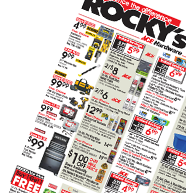There are two main types of woodworking chisels-butt and firmer.
A butt chisel has a short blade that ranges from about 2 1/2″ to 3″ long. It is used by pattern-makers, cabinetmakers, carpenters and do-it-yourselfers for carving, paring and similar work. It can be used with hard-faced hammers.
A firmer chisel has a longer blade, usually from 3 1/2″ to 6″, and is used mainly for cutting deeply into wood. It should be used with soft-faced hammers.
Chisels have wood or plastic handles. Wood handles are available in both tang (the end of the blade or tang fits into the handle) and socket type (a projection from the handle fits into a socket in the blade). Plastic handles fit only tang construction.
Quality woodworking chisels have large, ergonomically shaped handles for a comfortable, sure grip and better control. Blades should be of high-quality carbon, heat-treated steel with precision ground cutting edge. In addition, woodworking chisels should have crowned steel strike caps to help center the blow.
Some chisels also offer added convenience features such as having the chisel size etched or stamped into the blade, and tip guards with built-in sharpening guide to help protect the blade. Chisels used on stone, concrete and brick vary in design and use-brick chisels for cutting brick; brick tooth chisels for cutting soft stone such as Bedford limestone; and bull-point concrete chisels for breaking and drilling concrete.
Cold chisels have several styles-flat (most widely used), cape, diamond point and round nose. They are used only for cutting and chipping cold metal (unhardened steel, cast and wrought iron, aluminum, brass, copper, etc.), never masonry.
They should be struck only with a hand drilling, ball-peen or similar heavy hammer with a face diameter approximately 3/8″ larger than the struck tool head.
All-steel chisels and punches (not wood chisels having wood or plastic handles) are subject to chipping that can cause bodily injury much the same as steel hammer faces. Therefore, applicable ANSI safety standards require the warning WEAR SAFETY GOGGLES to be on each tool. Nearly all domestic manufacturers comply by stamping those words into the shank.
Check your state and local codes before starting any project. Follow all safety precautions. Information in this document has been furnished by the North American Retail Hardware Association (NRHA) and associated contributors. Every effort has been made to ensure accuracy and safety. Neither NRHA, any contributor nor the retailer can be held responsible for damages or injuries resulting from the use of the information in this document.

